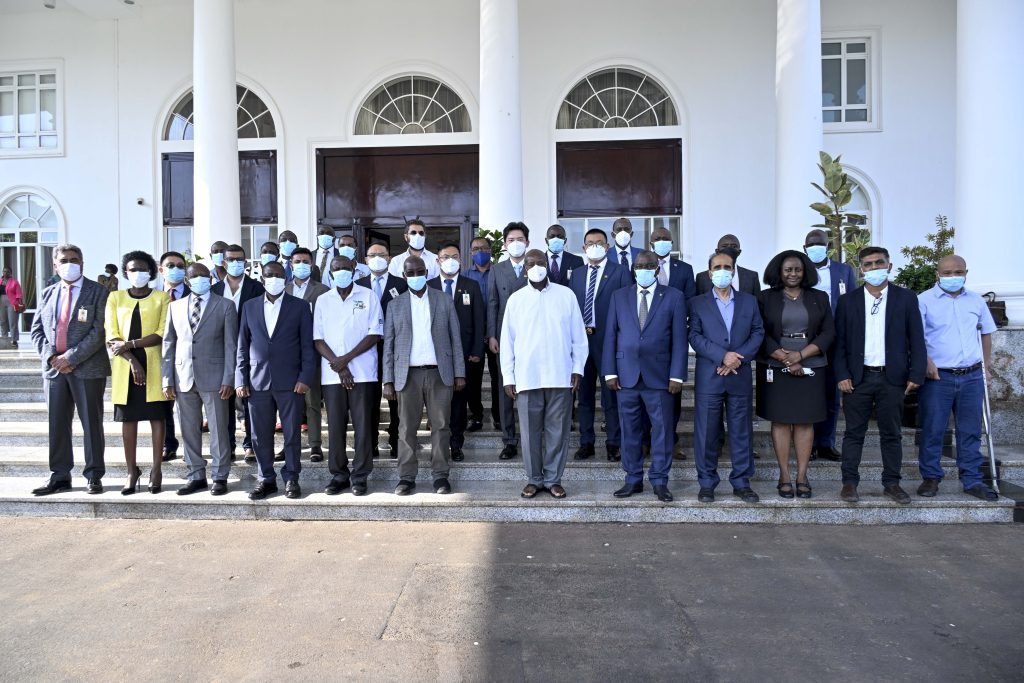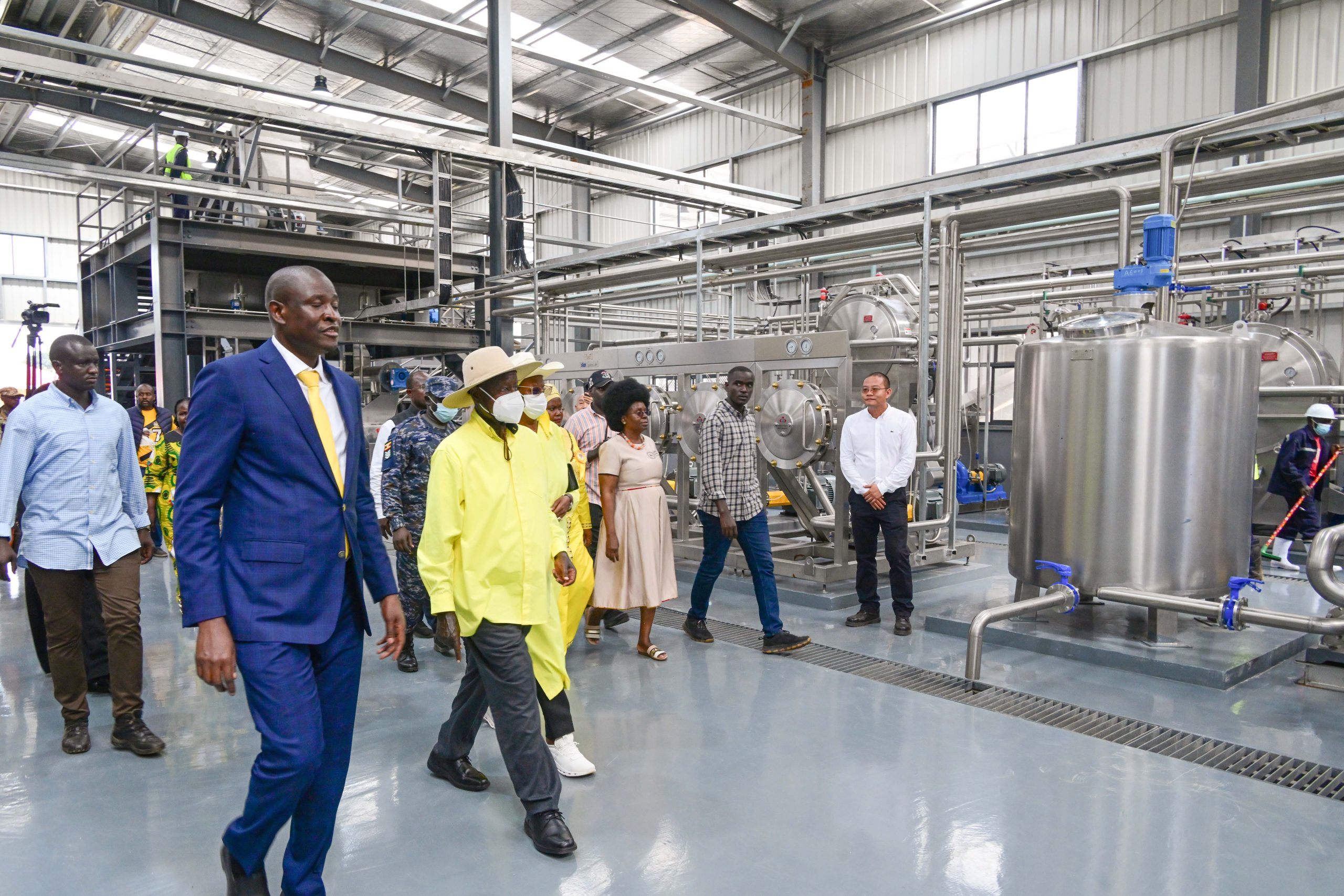President Yoweri Kaguta Museveni has today met with a group of officials from the Uganda Manufacturers Association (UMA) at State House, Entebbe.
UMA is an umbrella body of manufacturers in Uganda.
During the meeting, the President informed the officials that they must forge ways of revitalising the country’s textile industry as a key driver of economic growth.
President Museveni emphasised the importance of protecting and developing the local textile industry.
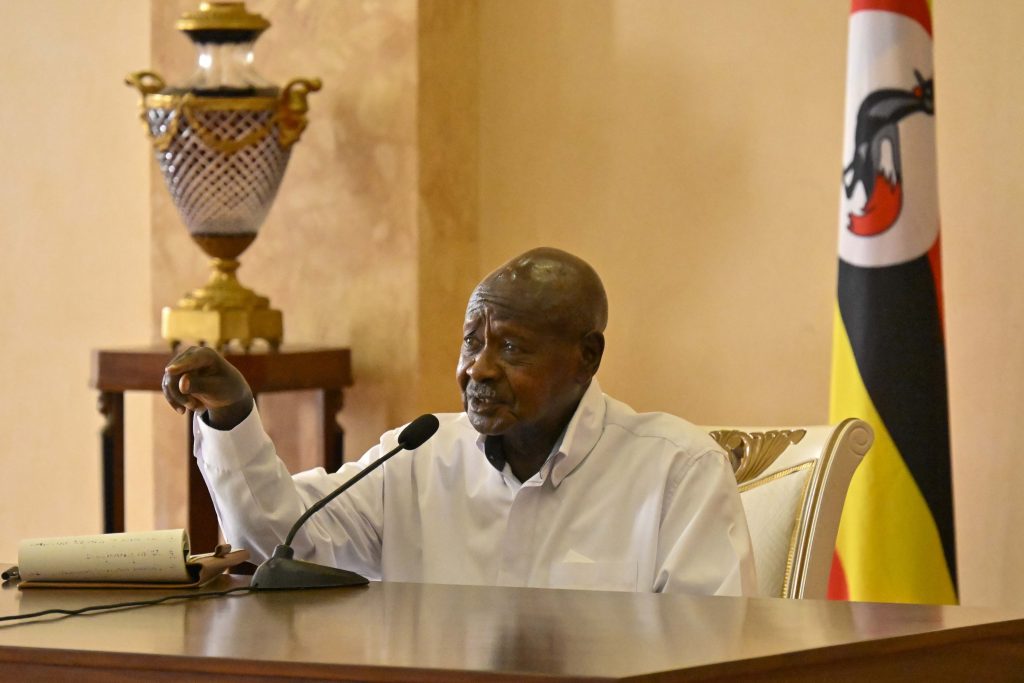
“We need to find the best ways to keep out foreign textiles and boost our own production,” he said, highlighting recent measures such as imposing taxes on textile imports to encourage local manufacturing.
“I need your opinion on the little war we have been having with importers. These government people woke up and put a tax on textiles, a percentage on the weight (kilograms); that is because we want to shut out foreign textiles.”
Mr. Deo Kayemba, UMA’s Board Chairman, thanked President Museveni for his continued support for local manufacturing.
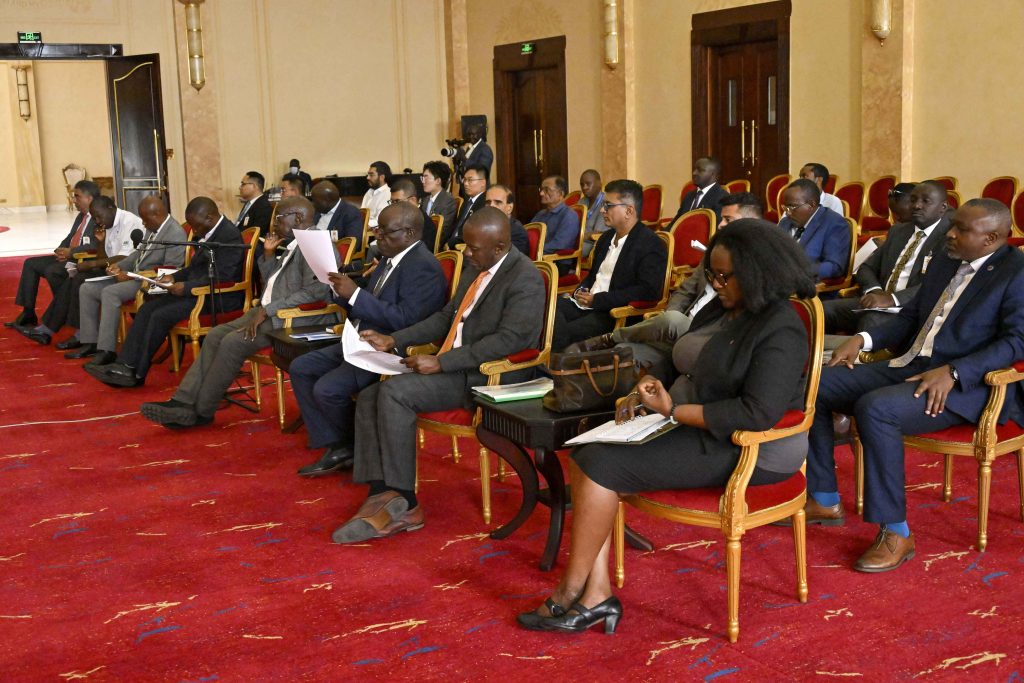
Currently, only 10% of Uganda’s cotton undergoes value addition, a figure UMA aims to significantly increase.
“First and foremost, UMA is strongly ready to support primary industries like the textile we are talking about. When you talk of textile, Uganda is producing 150,000 bales of cotton and out of this, only 10 percent gets value addition and exported. The 90 percent is left as cotton. From the 50 percent where we add value, we earn $50 million, so, if we took the 90 percent and added value to it, this industry would transform this country,” he said.
Mr. Kayemba further noted that the manufacturing sector employs around 1 million people directly and 4.5 million indirectly, thus contributing significantly to the economy.
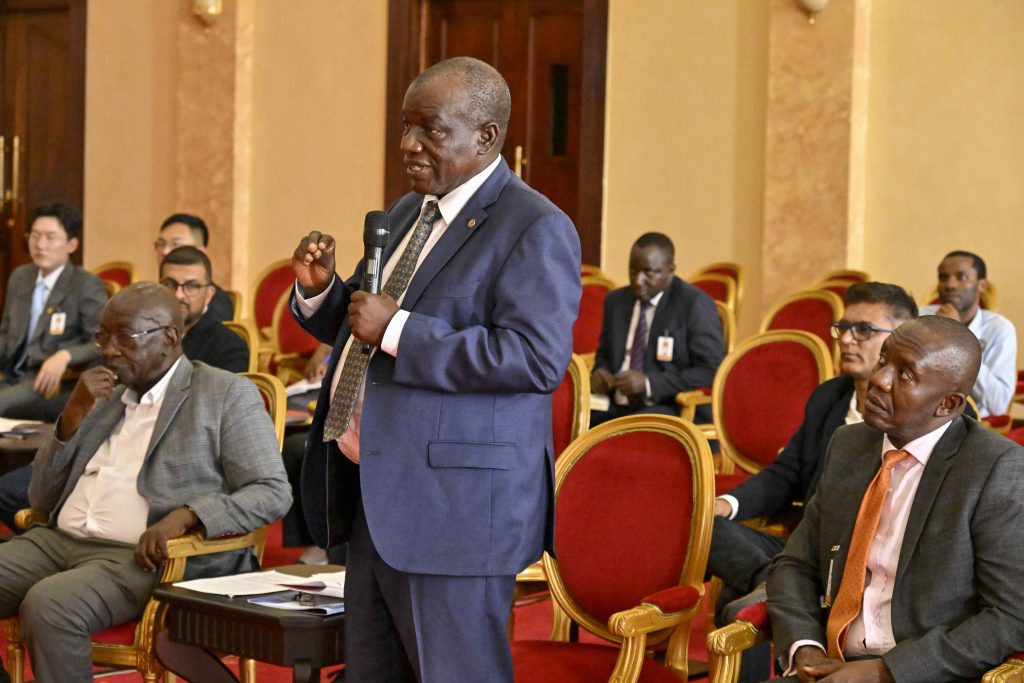
He added that manufacturers consume 70 percent of Uganda’s electricity, with a peak demand of 1,000 megawatts.
Mr. Kayemba shared UMA’s commitment to advancing Uganda’s economic goals, including the ambitious target of expanding the economy from USD 55 billion to USD 500 billion.
The UMA Board chair also expressed confidence that with government support, the manufacturing sector, particularly textiles, can be a cornerstone of Uganda’s economic growth.
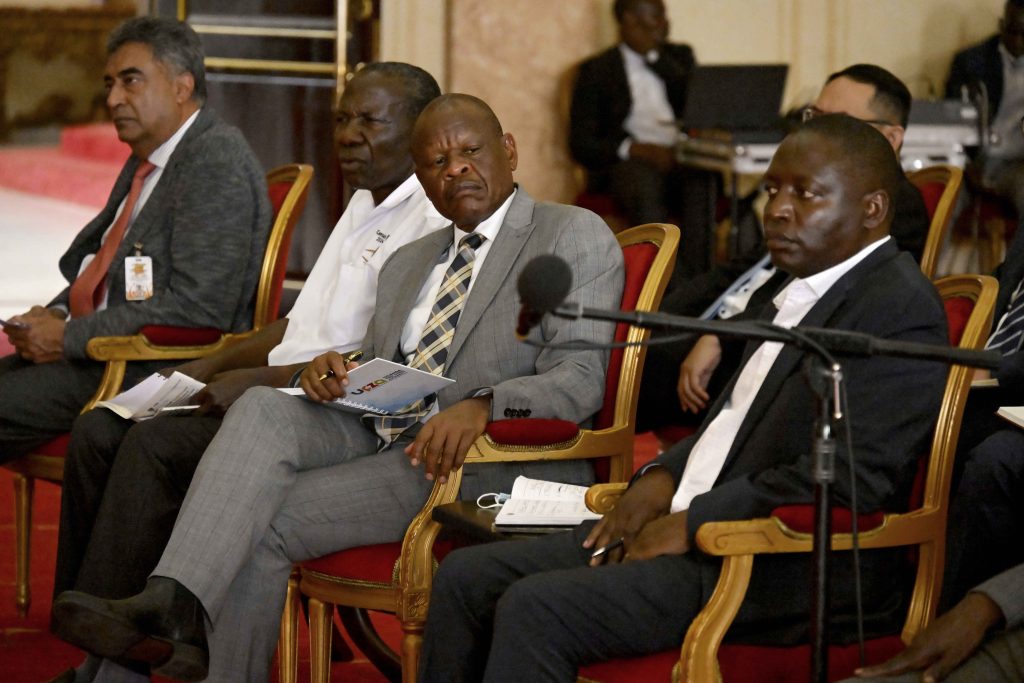
“UMA aims to significantly boost local production, create jobs, and enhance Uganda’s global competitiveness in the textile market,” he noted.
The meeting was also attended by the Minister of Finance, Planning and Economic Development, Hon. Matia Kasaija, the Minister of Trade, Industry and Cooperatives, Hon. Mwebesa Francis, the Minister of State for Industry, Hon. David Bahati, the Minister of State for Trade , Gen. Wilson Mbasu Mbadi, the Minister of State for Investment and Privatisation, Hon. Evelyn Anite, Uganda Revenue Authority (URA) Commissioner General, Mr. John Musinguzi, among others.



